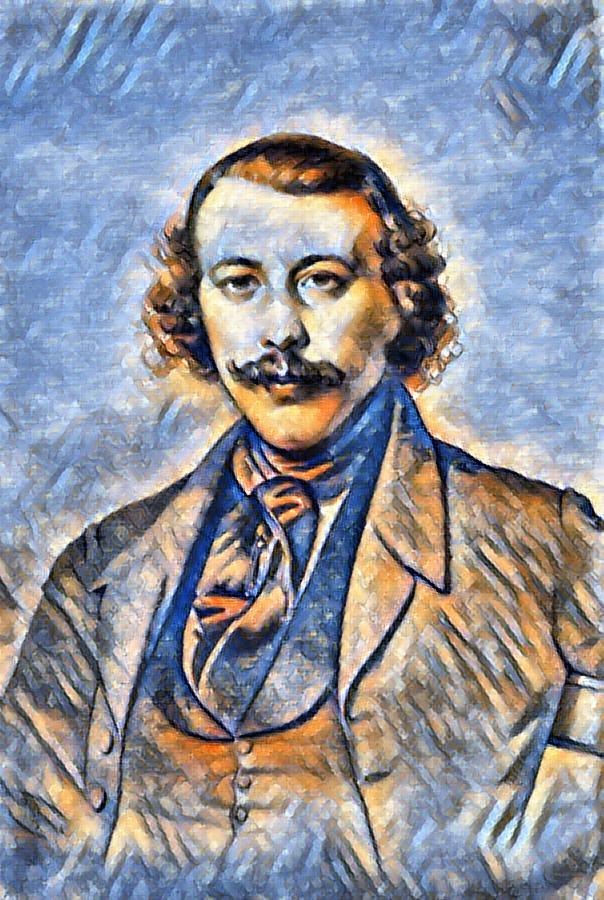Władysław Broniewski (1897—1962), the famous Polish poet, translator, writer and soldier, wrote this poem as a homage to Mikhail Bakunin (1814—1876), the Russian revolutionary. This poem is translated by Przemysław Abramowski.

Bakunin
Such veiny hand on manuscript
Lionish profile of head above it.
Huge shadow falls on wooden doors
Slightly ajar. On the table
Oil lamp glows
While the night—immense, starry…
The silence overwhelms, it’s midnight.
Sparkling snow on roofs, fluffy snow.
Bakunin’s writing.
(This veiny hand. The lion’s mane.
Ominous shadow alludes pain?)
The shadow here might rise a cloud
Which could unleash a storm today!
(How heavy’s hand… To think about
Why pen—my weapon—is a weight…)
Outside—just snow, night, stars…
The tea is tepid. Pipe’s smoke rises…
Bakunin dreams—scenes from his life
Flow in his brain… some, inter alia,
Adventurous—like freedom run
He made alone through Transbaikalia
With Tsarist posse right on his heels
Escape by luck—chance U.S. sail…
His traces then, to their blight
As if some snow obscured white.
The silence grows. The darkness crawls.
Cherry smoke curls dreamingly wade…
This shadow there, dwarfing the walls
It’s him! Year eighteen forty-eight!
Again, voracious and so savage
Sniffing for blood in shifts of tone
Song sung on Dresden’s barricades
Which cries as then: Tear down the thrones!
This song puts Europe to a torch
The spring of nations, freedom’s magnet
The million-footed crowd now bulging
In booms of salvos—hear, young Wagner!
…all lost. Last, mutinous
Prague would flash, then only darkness.
And so things ended up
In chains, in bloody Chemnitz dungeon.
Each day he measured the world with thought
His cell had three steps for him only.
Freedom! Many hard years went by
Whispering her name to walls in torment.
Nicholas’ thugs put him in chains
Whose ringing he only heard as “Rise!”
Free man he sailed the world around,
No land was safe like Switzerland
Where he had settled—and what today—
Bern’s eerie silence so tough to heart?
Here—Siberian snow…
Wild and unbounded freedom!
Longing, which Herzen didn’t know!
In this great silence time seems to
Roll back the memory with its weight
Bakunin’s mind breaks free and talks
Again to Orlov, which their fate
Prevented, yet the old man swears
To give the Tsar no more weak lies
Never kowtow—better offend!
“Pugachov’s spectre is now me
So like a phantom shall I stand
Over Empire, and people’s fury
From prison here I will swing
On world and Russia!”
With squinted eyes
This January Bakunin writes:
“I’m leaving only what I got
Some clothes (all patched), some free thought.
The glass of life—I took a good sip
So as a free man I’m on this old trip
I’m leaving now. Swiss city Bern,
Its silence—Iet clock-masters keep them.
Our stars have harsher sparkle learnt
Over the steppes and in my wisdom.
Slowly through snow I’ll walk alone
After the call of northern wind
Which in eternal snowstorm blows
And blasts, so free—all time it did
Shake fist at Earth—while in its path
Teaching us humans its full wrath.”
